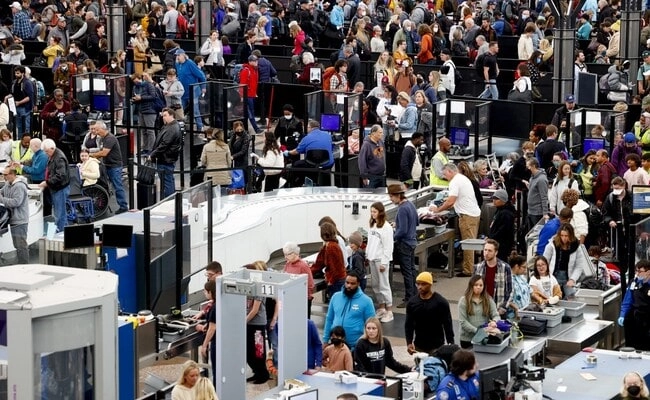The Trump administration has made a significant move by abandoning a Biden-era proposal that aimed to mandate compensation for passengers experiencing delays on U.S. airlines. This decision signals a shift in policy that could have substantial implications for air travel in the country. The original plan sought to hold airlines accountable for delays and cancellations by requiring them to compensate affected passengers. Advocates for the proposal argued that it would provide much-needed relief to travelers who often find themselves stranded or inconvenienced due to factors beyond their control.
The abandonment of this plan reflects a broader trend in the current administration to roll back regulations established during the previous administration. By prioritizing the interests of airlines over passenger rights, the Trump administration is signaling a return to a more lenient regulatory environment. Critics of the decision argue that it undermines consumer protections, leaving travelers vulnerable to the challenges of air travel without any recourse for compensation. The lack of a compensation framework could lead to a diminished sense of accountability among airlines, which may not prioritize timely departures and arrivals as they once would.
In the wake of this decision, travelers may find it increasingly difficult to navigate the complexities of air travel, particularly during peak seasons or adverse weather conditions. The absence of mandatory compensation could lead to a situation where airlines have less incentive to address operational inefficiencies that contribute to delays. As consumer advocates voice their concerns, it remains to be seen how this policy shift will impact the overall travel experience for Americans. The debate over passenger rights versus airline interests is likely to continue, as stakeholders on both sides of the issue navigate this evolving landscape.
Ultimately, the decision to drop the compensation requirement may have lasting effects on the air travel industry, particularly as it seeks to recover from the disruptions caused by the COVID-19 pandemic. While airlines have faced numerous challenges, including staffing shortages and operational hurdles, the responsibility to maintain a high standard of service and reliability falls on their shoulders. As the travel landscape evolves, the need for a balanced approach that considers the rights of passengers alongside the operational realities of airlines will be more important than ever. The outcome of this policy direction will undoubtedly shape the future of air travel in the United States for years to come.




